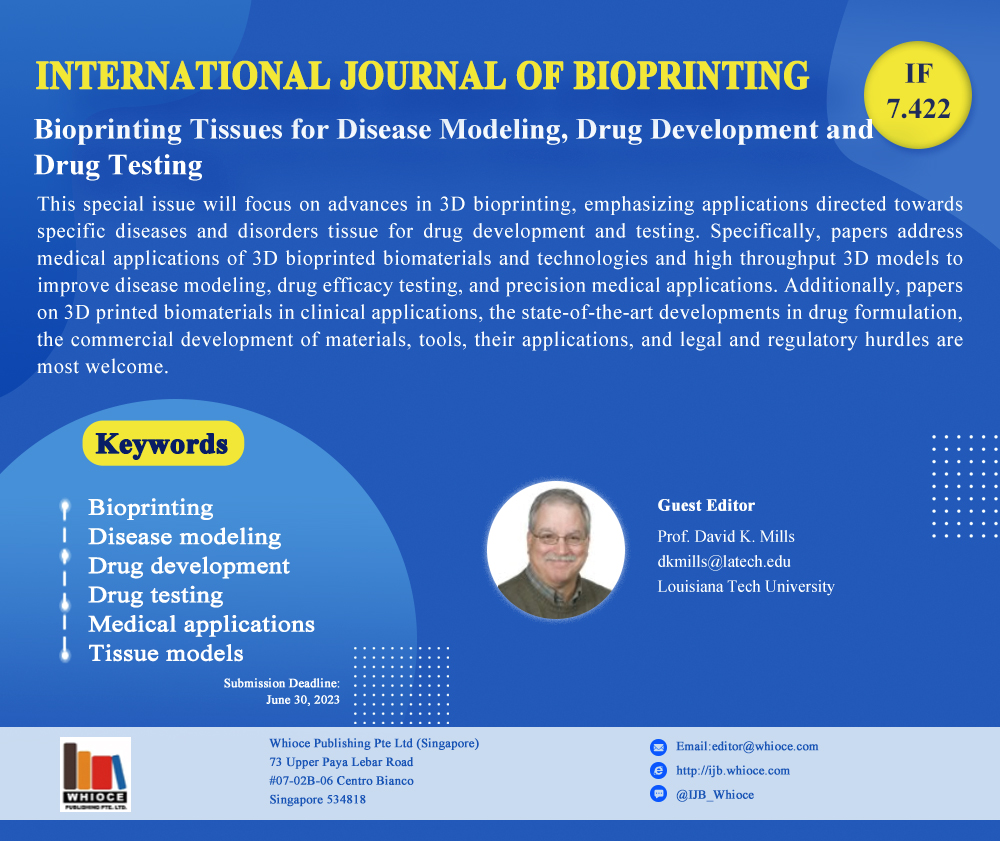
3D bioprinting is a relatively novel tissue engineering strategy; it holds great potential to play a critical role in personalized medicine. Recent advances in 3D bioprinting have significantly advanced the field of disease modeling, drug development, and development and therapeutic screening. In addition, tissue arrays can be used to study cellular metabolism and physiology. Bioprinting generally is based on a few main technological approaches such as extrusion, inkjet, laser-assisted, or stereolithography.
This special issue will focus on advances in 3D bioprinting, emphasizing applications directed towards specific diseases and disorders tissue for drug development and testing. Specifically, papers address medical applications of 3D bioprinted biomaterials and technologies and high throughput 3D models to improve disease modeling, drug efficacy testing, and precision medical applications. Additionally, papers on 3D printed biomaterials in clinical applications, the state-of-the-art developments in drug formulation, the commercial development of materials, tools, their applications, and legal and regulatory hurdles are most welcome.
Organoid bioprinting strategy and application in biomedicine: A review
Strontium-doped calcium silicate scaffolds with enhanced mechanical properties and tunable biodegradability fabricated by vat photopolymerization


